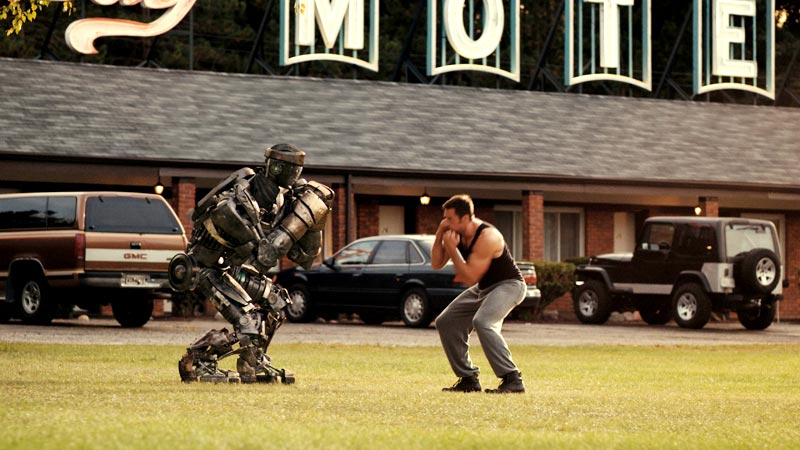Culture
With a will of “Steel”

Real Steel
dir. Shawn Levy
Release Date: Oct 07, 11
- 1
- 2
- 3
- 4
- 5
- 6
- 7
- 8
- 9
- 10
The child star is one of film’s most grating presences, when mishandled. Running the gamut from precocious and saccharine to obnoxious and grating, they are too frequently an albatross around the neck of their given movie. 2011, though, has been blessed with strong kid performances all over (Noah Ringer in Cowboys & Aliens, the entire cast of Super 8), and now there’s Dakota Goyo in Real Steel, who outshines the man who played Wolverine, steals the film and never looks back.
It’s hard not to compare Real Steel to, well, every other boxing movie in existence, because it truly and earnestly wants to be a part of the canon. The biggest surprise about the film is the relative delicacy it uses in setting up the relationship between Max (Goyo) and Charlie (Hugh Jackman) for a solid length of time before the robot sparring actually begins. The transition Steel makes into a kid-friendly actioner is nearly seamless, and it’s buoyed by the father-son dynamic, which rarely has room for sap. Within the first 15 minutes, Charlie signs custody of Max over to Max’s aunt (Hope Davis) after his mother dies, in exchange for $100,000 and a summer with Max. Max knows the score, knows Charlie has no interest in him and proves a caustic foil at all turns.
The two are finally united when Charlie, a notorious gambler (and not very good at it), gets in over his head in the high-stakes world of robot boxing. The film, set in an indeterminate year in the near future, establishes that humanity realized that robots could abuse each other in a way that man-on-man boxing couldn’t provide, and so mechanized fights became the new face of sports. Charlie, a former pugilist, can’t make the transition, and so Max (a ro-boxing obsessive) ends up discovering a robot named Atom at a landfill. Designed for sparring, Atom can take a lot of abuse and happens to have a “shadow mode” which allows Max and Charlie to program combinations and turn him into a “real” fighter.
From here, trope for trope, Real Steel takes on the color of a sports drama, with the twist that Max becomes the trash-talking, scrappy underdog trying to convince his father to find courage within himself. It’s a nice reversal, if a pretty telegraphed one, but Goyo and Jackman do the film a solid by bringing as much conviction as possible. Though Shawn Levy’s script doesn’t always hit its mark (a subplot involving Kevin Durand as a menacing, racist carny falls flat), the two leads have a charming, genuine chemistry that takes what many considered “the ‘Rock-‘Em-Sock-‘Em Robots’ movie” and turns it into a true crowd-pleaser.
[…] Heave Media reviews the movie Real Steel. […]